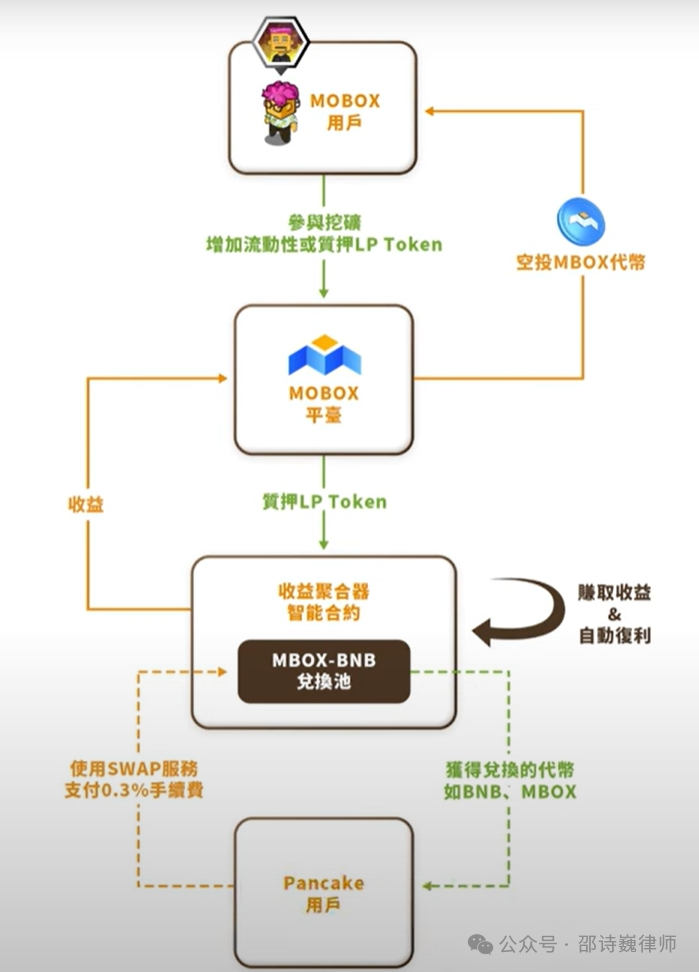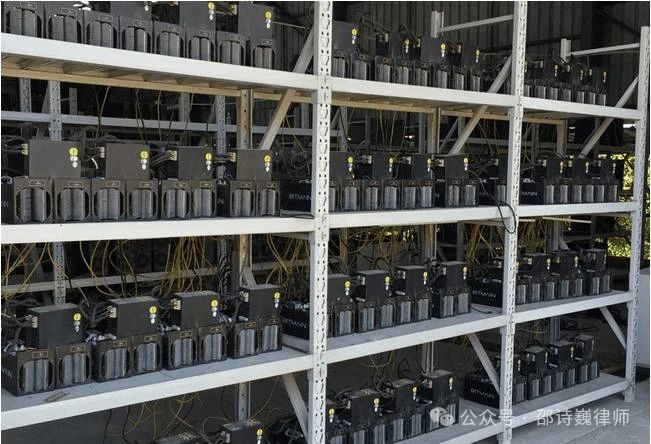Introduction:
In September 2021, the National Development and Reform Commission and other departments jointly issued the "Notice on Rectifying the 'Mining' Activities of Virtual Currency" (hereinafter referred to as the "Notice"), which prohibited mining in the country. Subsequently, blockchain games became popular. Is there any correlation between these two? Some people say that virtual currency mining is machine mining, and blockchain games are human mining, and fundamentally there is no difference. So, under the background of the ban on mining in China, will there be any legal risks for developing blockchain game platforms?
01 Is Playing Blockchain Games Mining?
Before answering this question, it is necessary to understand two concepts: virtual currency mining and liquidity mining.
1. What is Virtual Currency Mining?
In the blockchain, "mining" refers to a reward behavior for blockchain miners. In order to incentivize everyone to maintain data, the blockchain sets a reward rule. The person who processes data the fastest, best, and is recognized by the system can receive a corresponding amount of virtual currency such as Bitcoin as a reward. The way to obtain virtual currency through this rule is called "mining," and the people participating in data processing are called "miners," responsible for transaction confirmation and data packaging.
2. What is Liquidity Mining (Yield Farming)?
Liquidity mining is an application in DeFi (decentralized finance), which refers to the mechanism where users provide token assets to support the liquidity of DeFi projects in order to earn profits. For example, users deposit or borrow tokens on the Compound lending platform to improve the liquidity of the fund pool, thereby earning COMP governance token rewards. Liquidity mining is essentially a token distribution mechanism that makes DeFi applications more user-friendly and promotes user participation in DeFi business.
In simple terms, it can be understood as earning profits by depositing tokens, known as "mining," which adopts the concept of virtual currency mining mentioned above. The profits from liquidity mining include governance tokens and transaction fees.
For example, Mobox, established in 2020, is a blockchain game platform with DeFi liquidity mining as its core. One of the core gameplay features of the Mobox platform is to use liquidity mining, where users provide liquidity for trading Mobox tokens and BNB tokens on PancakeSwap (a decentralized cryptocurrency exchange) and stake the LP tokens received on Mobox to receive airdropped Mbox tokens.

02 What Legal Risks Exist for Developing Blockchain Game Platforms in China?
The common feature of virtual currency mining, liquidity mining, and the play-to-earn model in blockchain games is the need to invest human and material resources to obtain proof of work and then exchange it for profits. So, does the "Notice" mentioned at the beginning of the article restrict blockchain game "mining"? The answer is no.
This is because the notice targets the rectification of virtual currency "mining" activities. Virtual currency mining requires the purchase of a large number of mining machines and computer graphics cards, consuming a large amount of electricity. In practice, such as Bitcoin mining, it is more likely to constitute theft (theft of electricity). Although liquidity mining and blockchain games share similar principles with virtual currency mining, they do not actually involve the consumption of large amounts of electricity or the waste of national energy.

Without the restrictions on policy risks related to the "Notice," does this mean there are no legal risks? For blockchain game developers, there are two high-frequency legal risks to be aware of: the crime of operating a gambling house and crimes related to illegal fundraising.
The legal analysis of the crime of operating a gambling house can refer to Lawyer Shao's previous article "How to Avoid Gambling in Blockchain Games While Earning Money." Today, we will mainly discuss crimes related to illegal fundraising.
Illegal fundraising is not a specific criminal charge, mainly referring to the crimes of illegally absorbing public deposits and fundraising fraud.
First, the crime of illegally absorbing public deposits. According to the "Supreme People's Court's Interpretation on Several Issues Concerning the Specific Application of Law in the Trial of Criminal Cases of Illegal Fundraising," this charge can be summarized as having four characteristics: illegality, publicity, inducement, and non-specificity.
Publicity and non-specificity are characteristics that any blockchain game project will have, mainly referring to public promotion to the society and the absorption of funds from non-specific users. Even if some projects require an invitation code or have certain thresholds for participation in the game, in judicial practice, they are still considered to have publicity and do not pose obstacles.
Therefore, if blockchain game platforms want to avoid the risk of illegal fundraising as much as possible, they need to eliminate "illegality" and "inducement" in their platform gameplay. Specifically, "illegality" refers to the prohibition of platforms from engaging in the exchange of legal tender and tokens or "virtual currency" as stated in the "Announcement on Preventing Risks of Token Issuance and Financing," and "inducement" refers to promising users a guaranteed return or profit during game promotion.
Second, the crime of fundraising fraud. It refers to the act of embezzling fundraising funds for illegal purposes, such as squandering, using them for illegal activities, concealing, evading the return of funds, etc. Although blockchain games are a type of application based on the characteristics of decentralization and immutability of blockchain technology, it is undeniable that it is not possible to be completely decentralized in China. Among public chains, private chains, and consortium chains, only public chains are highly decentralized. In private chains, within a limited number of nodes, there is theoretically the possibility of organizers colluding with multiple malicious players to harm other players.
03 Conclusion
Based on the analysis in this article, it can be concluded that "mining" in blockchain games does not involve policy risks related to virtual currency mining. Instead, blockchain game platform entrepreneurs need to pay more attention to legal risks related to illegal fundraising. It is recommended to avoid "illegality" and "inducement" in platform gameplay through compliant promotion and game design. Additionally, internal partners also need to sign relevant agreements to prevent situations where some shareholders harm the interests of the platform and players, thereby affecting other shareholders.
免责声明:本文章仅代表作者个人观点,不代表本平台的立场和观点。本文章仅供信息分享,不构成对任何人的任何投资建议。用户与作者之间的任何争议,与本平台无关。如网页中刊载的文章或图片涉及侵权,请提供相关的权利证明和身份证明发送邮件到support@aicoin.com,本平台相关工作人员将会进行核查。



